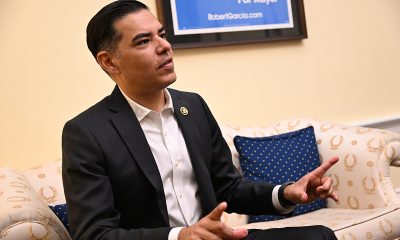Politics
Meet five trailblazing LGBTQ candidates of 2022
These queer politicians are running to make a difference
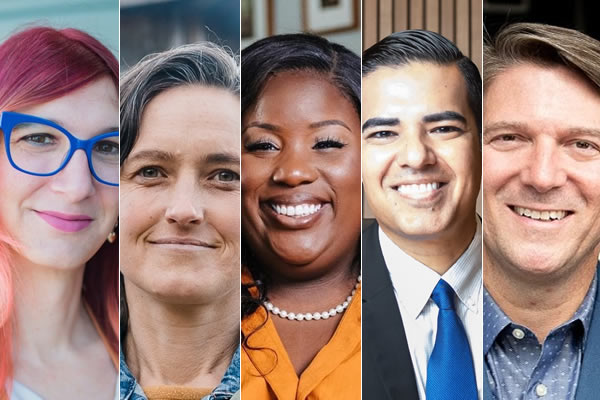
Each year, more LGBTQ candidates run and are elected to serve in local, state, and federal offices. And 2022 is shaping up to be no different.
As of the 2021 election cycle, there are more than 1,000 out LGBTQ representatives in the United States. Several LGBTQ trailblazers are running for office in 2022; here are five candidates to keep your eye on this year.
Jasmine Beach-Ferrara
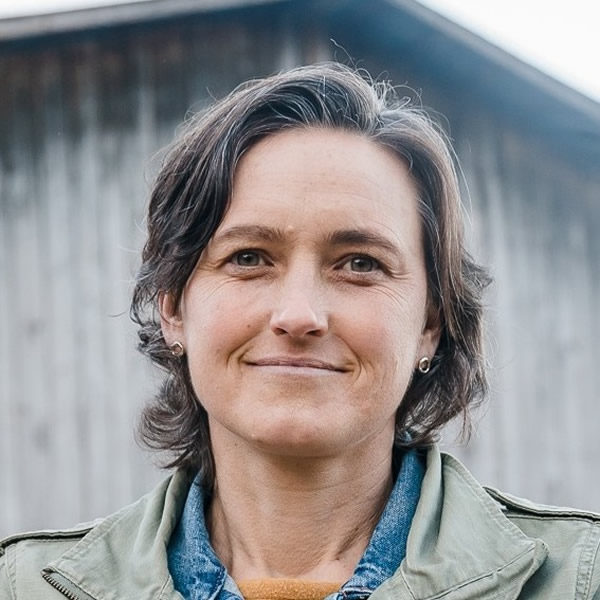
Current position: Buncombe County Commissioner
Position sought: U.S. House of Representatives, District 14
After serving as Buncombe county commissioner in North Carolina, Jasmine Beach-Ferrera is making a change and running for the U.S. House of Representatives.
Beach-Ferrara, who is a lesbian, was elected in 2016 and reelected in 2020. She is also an ordained minister in the United Church of Christ and the founding executive director of the Campaign for Southern Equality.
She said it’s been a “tremendous honor” to serve as a county commissioner. During her tenure, Beach-Ferrara has been pushing for policy focused on early childhood education and opioid epidemic response, as well as pandemic relief projects.
“Local government is such a powerful part of how government happens in our country. It’s so immediate in terms of impacting people’s lives so quickly,” she said. “Personally, I really just love having the opportunity to serve in that way and it’s been a big motivator for me in terms of why I’m now seeking to serve on the federal level.”
If elected, Beach-Ferrara wants to focus on building bridges and listening to what her constituents need, which are needed priorities that have been lost under toxic leadership in the state, she said.
While on the campaign trail, Beach-Ferrara said being out has been a big strength for her.
“The power of people running and being out is that the moment you come out, you’re communicating a few things … honesty and authenticity, and letting people know that you are showing up exactly as you are,” she said.
Robert Garcia
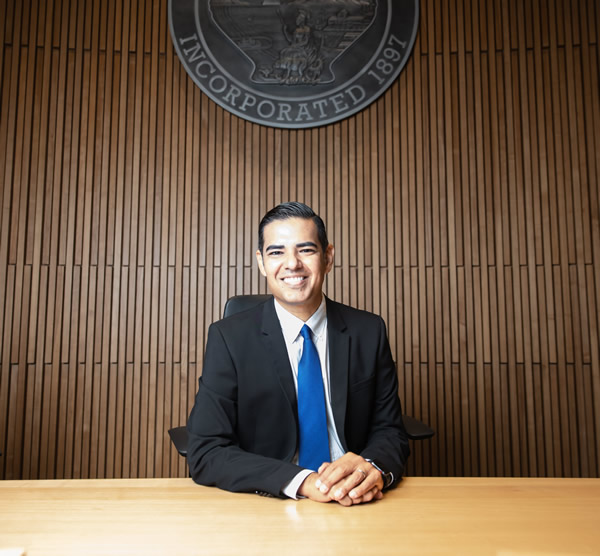
Current position: Mayor of Long Beach, Calif.
Position sought: U.S. House of Representatives, CA-42
Mayor Robert Garcia is running for the U.S. House of Representatives.
As the mayor of Long Beach, Calif., Garcia forged a national model for testing and the COVID-19 vaccination rollout. Long Beach was the first municipality to vaccinate educators in California. He is the first mayor of Long Beach to appoint a majority of women to board and commissions, as well.
Garcia, who is gay, immigrated to the United States from Peru when he was five years old. Becoming a citizen was “the best thing that ever happened” to him, he said. Now, he is running for Congress to help give people the same opportunities given to him.
“Patriotism is about helping people. It’s about taking care of your neighbor. It’s about standing up for the values that made this country and that includes supporting kids like me who are immigrants,” Garcia said.
If elected, Garcia wants to focus on building infrastructure as he has as mayor, expand LGBTQ rights and provide pathways to citizenship for folks that are undocumented.
“I understand the immigration system because I went through it,” Garcia said. “I know how people struggle and how folks navigate a complex and burdensome system.”
Michele Rayner-Goolsby
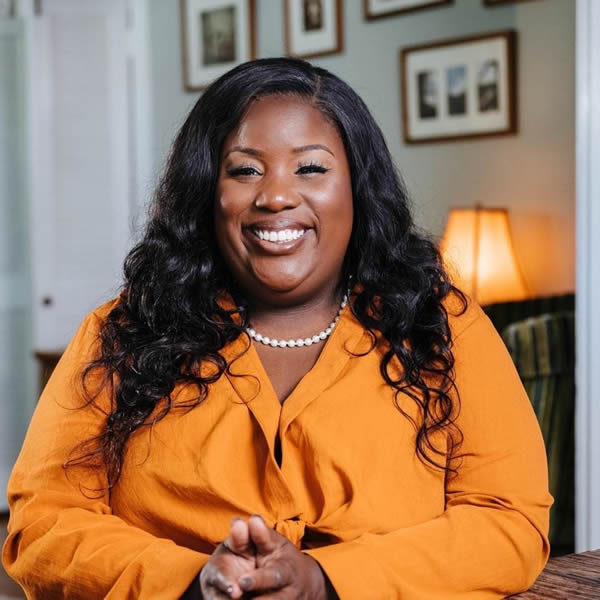
Current position: Florida House of Representatives, District 70
Position sought: U.S. House of Representatives, FL-13
Former Civil Rights Attorney Michele Rayner-Goolsby wants to bring a fresh perspective to Congress.
Currently serving as the first out queer Black representative in the Florida Legislature, her priority is advocating for her constituents.
“People are hungry for a different type of leadership — that is rooted in community, that is rooted in transparency, that is rooted in accountability,” she said.
Rayner-Goolsby’s experience as a Black queer woman is her “best strength,” she said.
“I’ve had to fight and earn everything that I have ever had in my life,” she said. That shapes the way I think about policy and legislation.”
As a statehouse representative, Rayner-Goolsby has spearheaded COVID-19 vaccine pop-up distribution sites and passed legislation like an urban agriculture bill to bring community gardens to food deserts and a workforce development bill that establishes an apprenticeship approach to becoming a certified nursing assistant.
If elected, Rayner-Goolsby wants to build legislation that outlasts her tenure, she said. She wants to pass comprehensive voting rights legislation, environmental justice protections and address the affordable housing crisis.
“We have got to come up with creative solutions,” she said. “And we’ve got to have the political will to figure it out. It’s not the lack of resources, it’s the lack of political will.”
Brianna Titone

Current position: Colorado House of Representatives, District 27
Position sought: Colorado House of Representatives, District 27
Brianna Titone, an incumbent in the Colorado Legislature, is seeking reelection after serving District 27 for two terms.
Titone is the first transgender person to be elected to the Colorado Statehouse.
After seeing three trans people win elections in 2017, Titone was inspired to run for the statehouse seat. Her background as a geologist and personal identity combined to give her a unique and powerful skillset.
“As a scientist, I’m able to understand and look at the data,” Titone said. “And as a trans person, I know how to be empathetic to people’s issues and problems.”
One of her biggest accomplishments was bringing back and passing the bill banning the “Gay and Trans Panic Defense” after the legislation was nearly killed.
“I pleaded with the Senate and the House leadership to get that bill back on the schedule. And we were able to do it,” she said. “I wasn’t going to let that issue have to wait another year to be passed.”
Titone has been on the frontlines in pushing against efforts to remove trans kids from sports, as well.
“I’m a big advocate for communities coming together,” Titone said. “And sports is a great way for people to come together and rally around the people in their community. When we leave kids out or we force kids out of that kind of activity, we’re really undermining community.”
Todd Delmay

Current position: Entrepreneur
Position sought: Florida State House of Representatives, District 100
Todd Delmay, a father, husband, and entrepreneur, has been on the frontlines of LGBTQ advocacy for years.
Delmay, who is gay, adopted his son with his partner in 2010 when it was still illegal in Florida. Delmay’s husband adopted their son Blake as a single parent, and Delmay was told to bring friends and “blend in the background” to not arouse suspicion. Later that year the law was overturned and Delmay adopted Blake as a second parent, but the process was humiliating and upsetting, he said.
In 2014, Delmay and his partner were one of the couples that sued for the right to marry in Florida. In 2015, Delmay and his husband were one of the first gay couples to marry in the state.
“That was a pretty empowering moment,” Delmay said.
Delmay is excited to bring his unique perspective as a gay parent to the statehouse, he said. Adoption rights, for example, is an issue Delmay can speak to personally.
“When LGBTQ people are in the room, it changes the conversation,” Delmay said.
Delmay is the CEO of Delmay Corporation, an event technology and software company. If elected, Delmay hopes to support small businesses, pass legislation concerning the environment and fight for civil rights.
“It’s important that the legislature always reflect the people because there are so many different perspectives,” Delmay said. “And if we have any hopes of turning the state blue, we need to make sure that we are speaking to everyone and that the legislature represents everyone.”
Congress
Congress passes ‘Big, Beautiful Bill’ with massive cuts to health insurance coverage
Roughly 1.8 million LGBTQ Americans rely on Medicaid

The “Big, Beautiful Bill” heads to President Donald Trump’s desk following the vote by the Republican majority in the U.S. House of Representatives Thursday, which saw two nays from GOP members and unified opposition from the entire Democratic caucus.
To partially offset the cost of tax breaks that disproportionately favor the wealthy, the bill contains massive cuts to Medicaid and social safety net programs like food assistance for the poor while adding a projected $3.3 billion to the deficit.
Policy wise, the signature legislation of Trump’s second term rolls back clean energy tax credits passed under the Biden-Harris administration while beefing up funding for defense and border security.
Roughly 13 percent of LGBTQ adults in the U.S., about 1.8 million people, rely on Medicaid as their primary health insurer, compared to seven percent of non-LGBTQ adults, according to the UCLA School of Law’s Williams Institute think tank on sexual orientation and gender identities.
In total, the Congressional Budget Office estimates the cuts will cause more than 10 million Americans to lose their coverage under Medicaid and anywhere from three to five million to lose their care under Affordable Care Act marketplace plans.
A number of Republicans in the House and Senate opposed the bill reasoning that they might face political consequences for taking away access to healthcare for, particularly, low-income Americans who rely on Medicaid. Poorer voters flocked to Trump in last year’s presidential election, exit polls show.
A provision that would have blocked the use of federal funds to reimburse medical care for transgender youth was blocked by the Senate Parliamentarian and ultimately struck from the legislation — reportedly after the first trans member of Congress, U.S. Rep. Sarah McBride (D-Del.) and the first lesbian U.S. senator, Tammy Baldwin (D-Wis.), shored up unified opposition to the proposal among Congressional Democrats.
Congress
Ritchie Torres says he is unlikely to run for NY governor
One poll showed gay Democratic congressman nearly tied with Kathy Hochul

Gay Democratic Congressman Ritchie Torres of New York is unlikely to challenge New York Gov. Kathy Hochul (D) in the state’s next gubernatorial race, he said during an appearance Wednesday on MSNBC’s “Morning Joe.”
“I’m unlikely to run for governor,” he said. ““I feel like the assault that we’ve seen on the social safety net in the Bronx is so unprecedented. It’s so overwhelming that I’m going to keep my focus on Washington, D.C.”
Torres and Hochul were nearly tied in a poll this spring of likely Democratic voters in New York City, fueling speculation that the congressman might run. A Siena College poll, however, found Hochul leading with a wider margin.
Back in D.C., the congressman and his colleagues are unified in their opposition to President Donald Trump’s signature legislation, the “Big Beautiful Bill,” which heads back to the House after passing the Senate by one vote this week.
To pay for tax cuts that disproportionately advantage the ultra-wealthy and large corporations, the president and Congressional Republicans have proposed massive cuts to Medicaid and other social programs.
A provision in the Senate version of the bill that would have blocked the use of federal funds to reimburse medical care for transgender youth was blocked by the Senate Parliamentarian and ultimately struck from the legislation, reportedly after pressure from transgender U.S. Rep. Sarah McBride (D-Del.) and lesbian U.S. Sen. Tammy Baldwin (D-Wis.).
Torres on “Morning Joe” said, “The so-called Big Beautiful Bill represents a betrayal of the working people of America and nowhere more so than in the Bronx,” adding, “It’s going to destabilize every health care provider, every hospital.”
Congress
House Democrats oppose Bessent’s removal of SOGI from discrimination complaint forms
Congressional Equality Caucus sharply criticized move

A letter issued last week by a group of House Democrats objects to Treasury Secretary Scott Bessent’s removal of sexual orientation and gender identity as bases for sex discrimination complaints in several Equal Employment Opportunity forms.
Bessent, who is gay, is the highest ranking openly LGBTQ official in American history and the second out Cabinet member next to Pete Buttigieg, who served as transportation secretary during the Biden-Harris administration.
The signatories to the letter include a few out members of Congress, Congressional Equality Caucus chair and co-chairs Mark Takano (Calif.), Ritchie Torres (N.Y.), and Becca Balint (Vt.), along with U.S. Reps. Nikema Williams (Ga.), Hank Johnson (Ga.), Raja Krishnamoorthi (Ill.), Delia Ramirez (Ill.), Joyce Beatty (Ohio), Lloyd Doggett (Texas), Eleanor Holmes Norton (D.C.), Josh Gottheimer (N.J.), and Sylvia Garcia (D-Texas).
The letter explains the “critical role” played by the EEO given the strictures and limits on how federal employees can find recourse for unlawful workplace discrimination — namely, without the ability to file complaints directly with the Employment Opportunity Commission or otherwise engage with the agency unless the complainant “appeal[s] an agency’s decision following the agency’s investigation or request[s] a hearing before an administrative judge.”
“Your attempt to remove ‘gender identity’ and ‘sexual orientation’ as bases for sex discrimination complaints in numerous Equal Employment Opportunity (EEO) forms will create unnecessary hurdles to employees filing EEO complaints and undermine enforcement of federal employee’s nondiscrimination protections,” the members wrote in their letter.
They further explain the legal basis behind LGBTQ inclusive nondiscrimination protections for federal employees in the EEOC’s decisions in Macy v. Holder (2012) and Baldwin v. Foxx (2015) and the U.S. Supreme Court’s decision in Bostock v. Clayton County (2020).
“It appears that these changes may be an attempt by the department to dissuade employees from reporting gender identity and sexual orientation discrimination,” the lawmakers wrote. “Without forms clearly enumerating gender identity and sexual orientation as forms of sex discrimination, the average employee who experiences these forms of discrimination may see these forms and not realize that the discrimination they experienced was unlawful and something that they can report and seek recourse for.”
“A more alarming view would be that the department no longer plans to fulfill its legal obligations to investigate complaints of gender identity and sexual orientation and ensure its
employees are working in an environment free from these forms of discrimination,” they added.
-

 U.S. Supreme Court2 days ago
U.S. Supreme Court2 days agoSupreme Court to consider bans on trans athletes in school sports
-

 Out & About2 days ago
Out & About2 days agoCelebrate the Fourth of July the gay way!
-

 Virginia2 days ago
Virginia2 days agoVa. court allows conversion therapy despite law banning it
-

 New York5 days ago
New York5 days agoZohran Mamdani participates in NYC Pride parade

